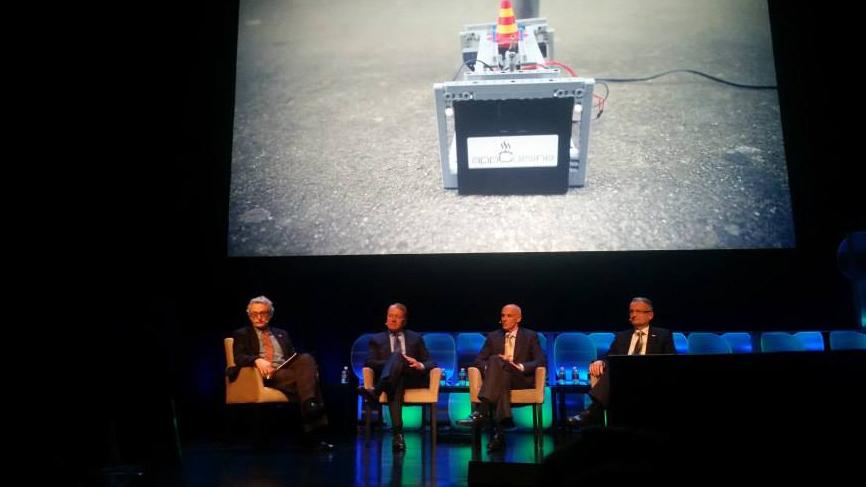The secret to business success
International CES conference sessions try to find the key to happy customers through innovation
January 7, 2015
If you want to learn about innovation, marketing and entrepreneurship, there is nowhere better than the International Consumer Electronics Show, held annually in Las Vegas, NV. There are lessons to be learned from the hundreds of conference sessions and keynotes to help businesses at every level. The basic point of all the discussions was that in order to fill the needs of your customers you must find out what they really want and need.
Robi Ganguly from Apptentive, a mobile startup based in Seattle, WA hosted a discussion on day one to help small businesses find their first customers and grow their brand loyalty. In a talk titled “From 0 to 100: How to Get 100 Customers Who Love You”, Ganguly stressed the importance of talking to the early adopters of your product to figure out what you are doing right and what could be done better. He began by discussing the difficulty of this conversation. “Generally speaking…less than one percent of the customer base is giving input to the company. And when you’re talking about taking your business from zero to 100, you can’t afford to be at that less than one percent level.”
According to Ganguly, it is critical to have these discussions for two reasons. Not only do you take their suggestions and improve your product, but also the simple act of demonstrating concern for your customer’s needs and problems helps them feel that your product has real value to them. By building a base of passionate customers, you also are growing a base of brand ambassadors.
When discussing how to get this valuable feedback, Ganguly mentioned several tools such as surveys or face-to-face meetings. Instead of considering it an inconvenience for people to tell you what they think, have the perspective that you are trying to help customers use your product to get a better return on their investment. In addition to feedback collection techniques, Ganguly’s associate Red Russak also spoke about the importance of letting your customers approach you directly with concerns. “If you’re in your zero to 100 phase of your business, you need to make it extremely easy for your customers to get a hold of you. The number one thing you need to have is something in your product that says, ‘you can contact me here, don’t hold back.’” According to this philosophy, customers shouldn’t be seen as users, but instead as people with real and valuable input to your product or service.

On day two of the show David Kirkpatrick, the founder and host of Techonomy, moderated a keynote panel titled “Fast Innovation: Disrupt or be Disrupted”, where top management from Comcast, Cisco and Robert Bosch GmbH met to discuss the importance of innovation in today’s world. A major trend of the discussion was the importance of changing an entire business infrastructure in order to better adapt to the changes in technology and the market. John Chambers, CEO of Cisco, mentioned that when it comes to disruption, technology is only one step. “We all tend to think the change is all about technology. You’ve got to change people and you’ve got to change culture. Actually technology may be the easiest part.”
The other panel members backed up this idea with personal stories of their own reorganizations and adjustments. For example, Werner Struth of Bosch discussed their use of both internal and external hackathons to help discover new ways to use their product. Through the events, he also realized there were new ways the business should be organized “We have to capitalize on external creativity. In addition we also want to understand how to set up new organizational principals within our own organization,” said Struth. The group also discussed the new products they create as a direct reflection of taking market needs and filling them in the best way by making important connections in other industries and companies to see how others solve similar problems.
As high level executives of huge companies, we may not consider these individuals to be helpful when it comes to starting a small business, but in the tech world size doesn’t matter – innovation does. We all have different goals and aspirations as we begin our life in business.
The primary takeaway from both of these sessions was that in order to keep up, a company must always be working for its customer. Whether that means going to them directly to find out what you need to do better or looking for disruptive ideas to revolutionize the industry, this ability is what divides the good companies from the great ones.



